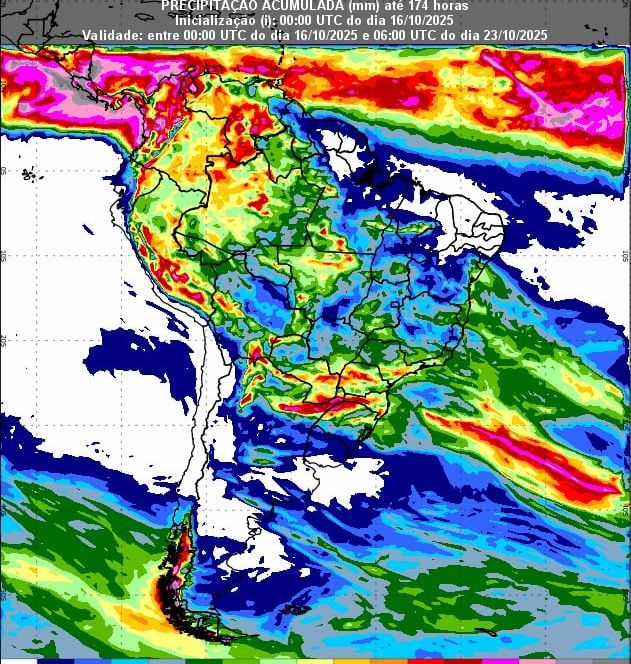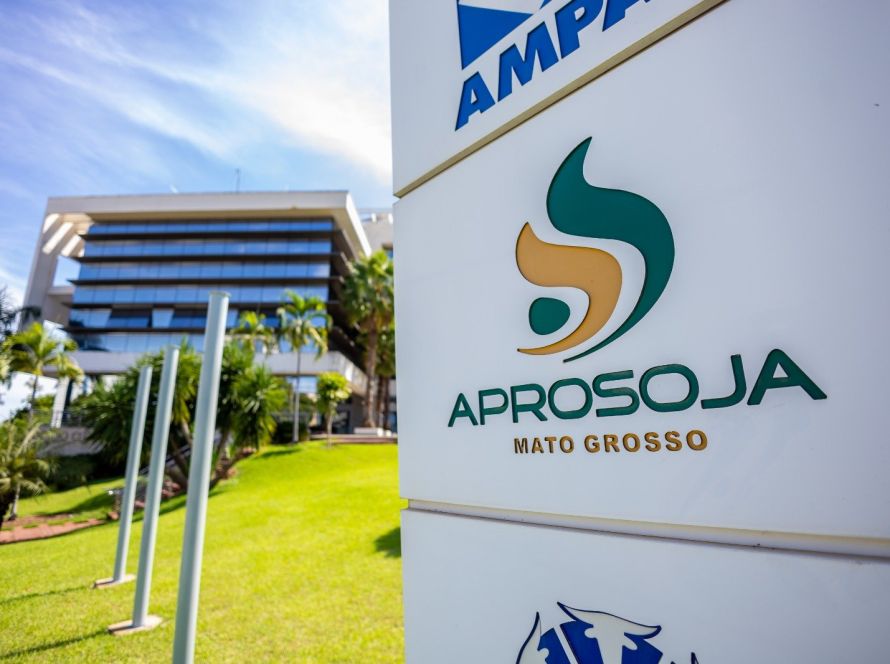The rain and cold weather experienced in Mato Grosso during the second half of June and early July are expected to impact the state's cotton harvest. Researchers at the Mato Grosso Agricultural Research Support Foundation (Fundação MT) are monitoring crops and developing research trials that will evaluate the impact of weather conditions on cotton performance and quality in this 24/25 harvest.
In the municipality of Sapezal, located in western Mato Grosso, one of the state's highest plume-producing regions, 108 millimeters of rain were recorded between June 23rd and 24th, a significant and unexpected amount for the period. The record was made at the MT Foundation's meteorological station, located at the Learning and Dissemination Center (CAD Oeste).
"This harvest, we experienced rain on crops that already had open bolls, with exposed plumes. This occurred especially in areas planted earlier, between late December of last year and early January 2025," explains Daniela Dalla Costa, a researcher at Fundação MT. Despite the impact on these locations, the researcher emphasizes that the number of rural properties planting during this period is limited. "The harvest area in Mato Grosso is still small. These are very restricted areas," she informs.
Other research trials are underway on cotton plants grown in the Primavera do Leste and Sorriso CADs, also aiming to assess the impact of humidity on yield and fiber quality. In Sorriso, 33 millimeters of rain fell between June 23rd and 24th, and in Primavera do Leste, 35 mm. "When we assessed the yield of the crop, which was subjected to a situation like this, we were able to identify some areas of loss," explains the researcher. "There are fiber quality indicators that signal the deterioration caused by the rain," concludes Daniela Dalla Costa.
Low temperatures lead to delayed harvest
Regarding the cold weather that hit Mato Grosso's crops in June and July, it directly impacted crop development. The first week of July saw a cold snap lasting four consecutive days. Early mornings were cooler in Sapezal, for example, where temperatures ranged from 11.7°C to 12.9°C, according to the National Institute of Meteorology (INMET). Sorriso also experienced colder mornings, with lows of 14.6°C, according to data from the same institute.
According to researcher Daniela Dalla Costa, low temperatures affect the physiological metabolism of plants, slowing their development and, consequently, lengthening the crop cycle. "The cold weather was more predicted than the rain, but it lasted longer than expected and caused significant impacts on the plants. With slower metabolism, the cotton cycle is prolonged, which means the plant will remain in the field longer and harvest will be delayed," explains the expert.
The researcher advises that producers need to pay extra attention to crop management planning, especially in the final stages of the cycle. Among the necessary measures is the strategic use of products that aid in the uniform maturation of plants. "Producers are already accustomed to using these tools, such as ripeners and defoliants, but now they will need to fine-tune their application. Defoliants, for example, are essential to induce natural leaf fall without compromising fiber quality at harvest," explains Dalla Costa.
Data and strategic guidelines will be available at the 17th Cotton Technical Meeting
The scenario of pests, diseases and productivity of the current harvest, in addition to the results of research and showcases of cultivars, will be presented to the participants of the 17th Cotton Technical Meeting, held by the MT Foundation, from September 2nd to 4th, at the Gran Odara Hotel, in Cuiabá.
Among the main pillars, which are under the control of the producer and directly influence the success of the cotton crop, the correct selection of cultivars, the appropriate management of growth regulators—especially important in scenarios of cycle extension—and the efficient control of diseases and pests throughout the plant's development stand out.
The impact of cotton fiber quality on foreign trade will also be discussed at the 17th Cotton Technical Meeting. Registration for the event is now open and can be completed online:fundacaomt.com.br.





